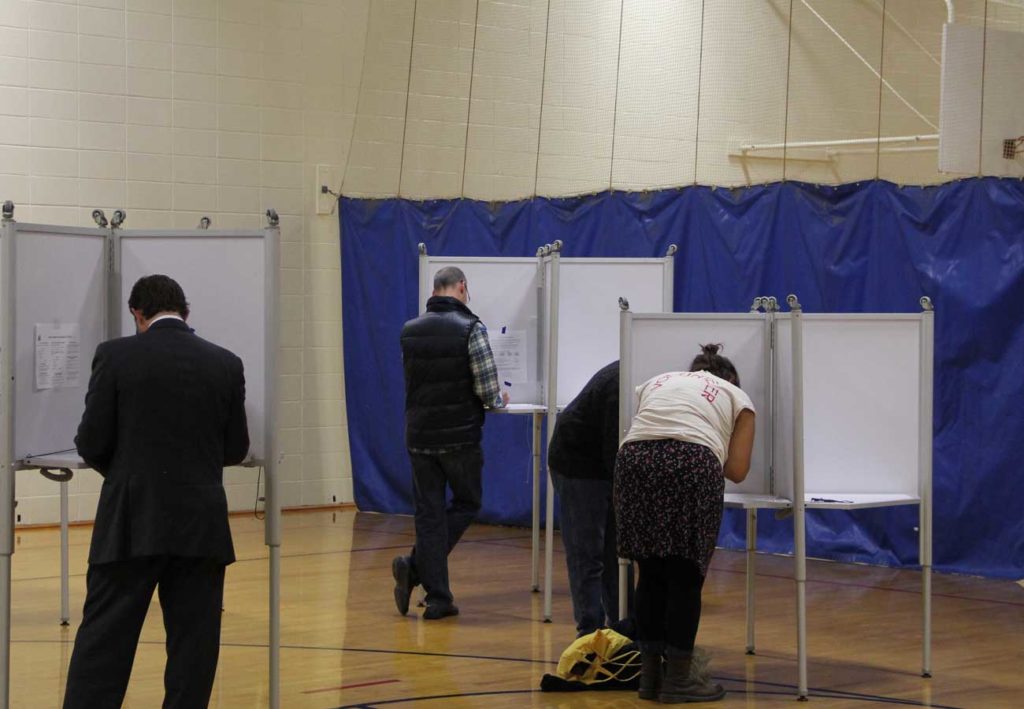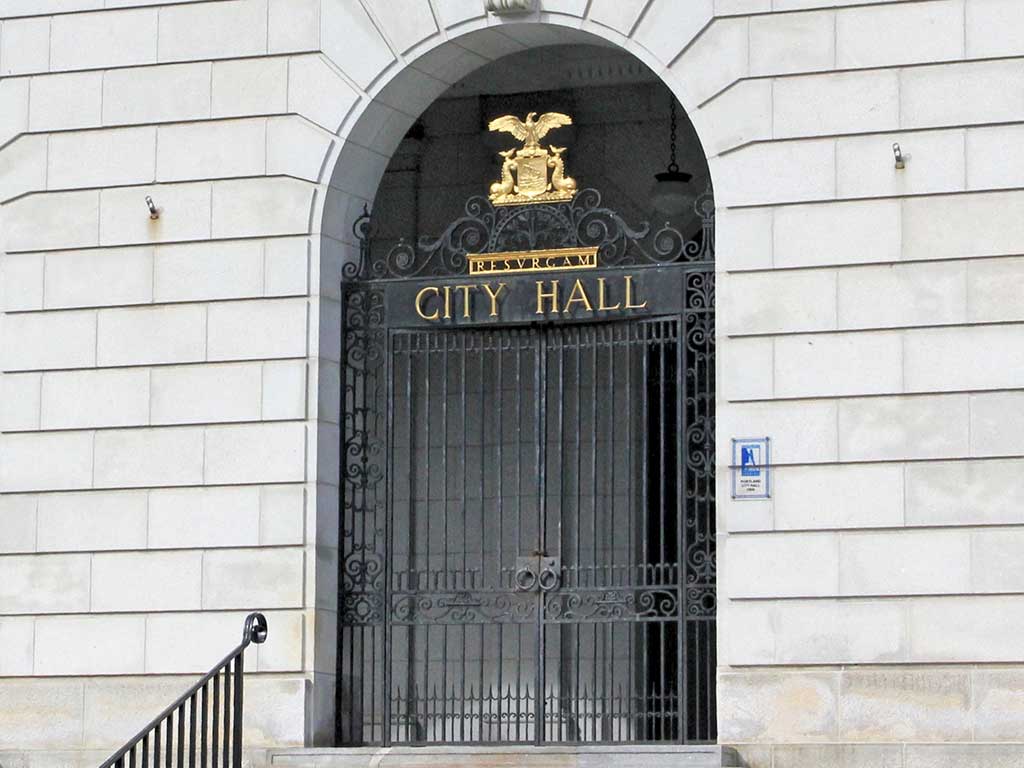Analysis: What municipal elections may look like if voters approve the Portland Charter Commission’s recommendations
By Tony Zeli
The Portland Charter Commission has presented its preliminary report to the city council. The most dramatic proposals are to the city’s governance model. If approved by voters, the amended charter would include an executive mayor and an expanded twelve-member legislative council. But the changes to municipal elections are among the most controversial, including a noncitizen voting proposal and a clean elections program that includes the report’s only fiscal note.
Below is look at how the changes to city elections could affect future campaigns in Maine’s largest city. Plus, find a brief look at some of the other recommendations from the charter commission. Copies of the preliminary report are available at the Portland Public Library and City Hall, Room 211. Or find the preliminary report, background documents, and a look inside the charter commission’s process and reasoning on their website at https://portlandcharter.me.
PORTLAND ELECTION 2028

The Presidential election 2028… Portland’s first executive mayor in generations, elected four years ago in 2024, is running for reelection. An incumbent, running down ticket from a popular Democrat for President, the mayor is entering the municipal election in an extraordinarily strong position. Especially, in solidly blue Portland. It’s a nonpartisan race, but voters know whose team everyone is on.
CANDIDATES
In 2028, three district seats and one at-large city council seat are on the ballot. Three school board districts are up for grabs, too. In 2028, the school board no longer has at-large seats, only nine district seats.
A lot of questions remain today about redistricting. But the new districts may include boundaries that line-up with the neighborhoods of Portland, and in election 2028 the Parkside, Libbytown/St. John Valley, and Deering Center districts are on the ballot. These districts are about half the size of the current ones, but they line up better with the state house districts.
CAMPAIGNS
There are new strategies this campaign season. Municipal candidates being with a new decision, whether to run as a publicly financed candidate or a traditionally financed one. The new municipal “clean elections” program may be modeled after the state’s program. Many candidates run with public funding and in exchange refuse to except campaign contributions.
For the district seats, campaigns are grassroots oriented with lots of door-to-door work. Districts are small and knowing the neighborhood counts. For the at-large races, money, media, and mailers are more important. Depending on funding amounts, at-large candidates may be more likely to be privately funded, raising the tens of thousands of dollars needed to win in Portland in a citywide race.
In election 2028, candidates are courting the so-called immigrant vote, registering non-citizens and educating voters about their new enfranchisement. Legal residents regardless of citizenship status are allowed to vote for mayor, city council, and school board (if the proposal survives legal challenges likely to come). The non-citizen vote is not necessarily a likeminded voting bloc, but in tiny districts the new voters may be enough to sway elections. How much so will likely be directly proportional to the effort candidates put in to get out the vote.
With proportional ranked choice voting coalitions are more important than ever. The coalitions are not as simple as liberal/conservative. In most districts, multiple Democrats are facing off against each other. Added to this dynamic, ranked choice voting provides the opportunity to rank each candidate. Many will be vying for your second preference and will want to run friendlier campaigns. But the biggest factor in each city council and school board race? Who has the popular mayor’s endorsement?
ELECTION DAY
Portland Election 2028 has a large turnout driven by the Presidential campaigns. The ranked choice experience for the voter is the same as today. The counting is done differently when there are races with more than one seat available. In these races, rather than a majority winner, candidates compete to reach a winning threshold. Otherwise, the voters’ task is the same: rank their preferred candidates in order.
OTHER RECOMMENDATIONS FROM THE PRELIMINARY REPORT
The Portland Charter Commission recommends replacing the current police review board with an independent civilian police oversight board consisting of nine members. The board will take complaints directly from residents and members of the police department and make policy recommendations.
Education recommendations include a new school budget process that removes city council approval from the process, allowing the budget to go from school board approval directly to a public vote, though city council can still offer nonbinding recommendations to the school board.

In addition, new charter language instructs city council to create a participatory budget process that would empower residents to provide ideas and feedback. Also, recommended is a new preamble that includes a land acknowledgement – a statement acknowledging that Portland sits on unceded territory of the Wabanaki and other peoples. And the charter commission recommends mandating city council to adopt a Code of Ethics and creates a watchdog in the form of a volunteer Ethics Commission of seven residents who could offer advisory judgments on ethics violations.
The commission may still make amendments before their final report. They are particularly looking at their governance recommendations. They have scheduled meetings for June 8th and 22nd, and another on July 6th to conclude their work. Their final report is due on July 11th.
Read more about these recommendations, the reasoning behind them, and find background resources on the new charter commission website: https://portlandcharter.me.
Tony Zeli is publisher and editor. Reach him at thewestendnews@gmail.com.


